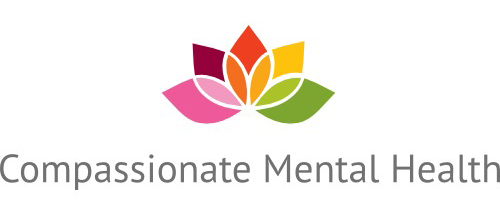Finding Meaning – transforming crisis into opportunity
Today is Katie Mottram’s birthday, and it’s also the launch of her #emergingproud, coming out of the spiritual closet campaign. “Coming Out” is normally understood as a rite of passage for people from the LGBT+ community, to transform stigma and shame into pride and celebration. Katie hopes her campaign will do the same for people who have experienced mental health crises, encouraging them to speak out about spiritual experiences as a way to combat stigma. Katie’s campaign aims to help build a bridge between psychiatry and spirituality, to normalise rather than pathologise unusual experiences.
Katie is well placed to comment on the need for a new paradigm in mental health. She worked in mental health services for many years, after growing up with a mum who has spent half her life in and out of hospital. In her book, Mend the Gap, Katie describes working with a young girl who was being treated with ECT:
“I dared to tell her that I had grown up with a mum who had long suffered “severe and enduring” mental health difficulties, and that I’d started to work in the field as a way to gain a better understanding…I told my patient that I thought she was very brave to talk about her struggles, and I only wished my mum could be so open and forthcoming about her own, internal struggle.”
Katie describes the importance of mental health professionals forming meaningful connections with people going through crisis: “Connecting on a human level. Giving someone trust who otherwise has none. Being an equal and genuinely interested, rather than acting like you’re on patrol…”
Katie is part of an international movement to raise awareness of spiritual crisis. She is a co-founder of the International Spiritual Emergence Network (ISEN), and also involved with the UK Spiritual Crisis Network (SCN).
SCN describe spiritual crisis as:
“A process of spiritual emergence, or awakening, that becomes unmanageable for the individual, where psychological or mental health difficulties may be experienced. If understood and supported appropriately, these experiences can be deeply transformative, offering the possibility of breakthrough rather than breakdown.”
Finding meaning in mental distress is emerging as an important way to deliver good quality person centred care. It’s increasingly seen as valid to understand what a person experiences during psychosis, and to listen and create a safe place for people to explore what matters to them.
Dr Russell Razzaque is a London based psychiatrist with more than 20 years experience in adult mental health. He’s leading the NHS UK Peer Open Dialogue project (NEFLT), and says open dialogue gives mental health professionals the tools to be alongside the person in distress so they feel heard, understood and supported. He says:
“There seems to be something missing from our traditional approach. It shouldn’t just be about saying this is all bad. We should have an openness, and create a space for people to find a meaning in their suffering.”
“Wherever we go we’re going to find suffering. We need to recalibrate our relationship with suffering, not see it as something to push away, deny or to try to remove. But as something that contains some real healing for us.”
“We need to try to find the message in our pain and suffering. Pain is calling our attention to something. And our reflex is to do the opposite, so we might binge on food, or take a pill or do something to get rid of it. Wherever possible we should try to go towards our suffering, and find the message in our pain because it’s calling us to learn something about ourselves…”
Open Dialogue is a compassionate approach that has been developed in Finland, and is now coming to the UK and other parts of the world. It involves creating a dialogue with the person in crisis and their social and support network, preferable within the first 24 hours. Current open dialogue projects outside Finland are shown to be producing good outcomes for people in America and the UK, and can reportedly reduce the need for hospitalisation and medication.
Dr Russell Rassaque is working with clinicians and peer workers from across four NHS Trusts in England to pilot the use of open dialogue in the UK. Open Dialogue training is also available from the pioneering organisation Open Dialogue UK.
Come and Find out More…
Dr Tom Stockmann and Dr Chris Salway, who are working with him on this exciting project, will be speaking about it on November 18th in Cardiff at Compassionate Approaches to Mental Heath -a one day experiential event designed to inform, inspire and empower people living and working with mental health issues. Joanne Tudman is also coming to share her positive experiences of using open dialogue to successfully recover and thrive after a psychotic episode.
Please book now to join us in Cardiff. Limited £35 tickets – sponsored by Welsh mental health and wellbeing charity Gofal – are available for people with lived experience and their supporters.




Leave a Reply
Want to join the discussion?Feel free to contribute!